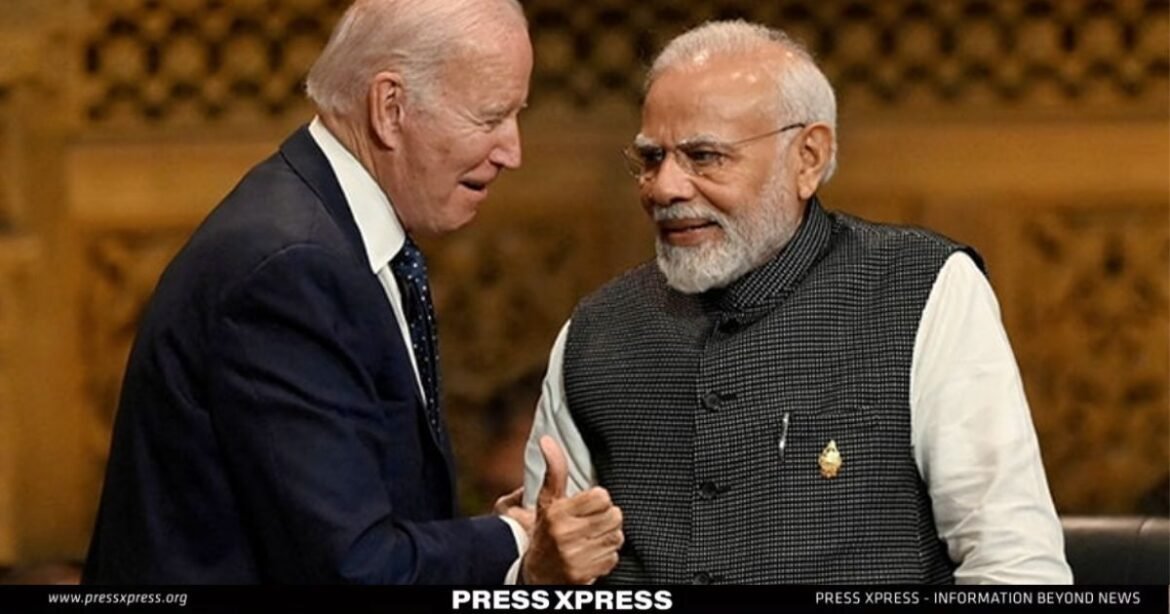Key Takeaways:
- Highlights US International Development Finance Corporation’s $553 million loan.
- Supports a deep-water container terminal project in Colombo, Sri Lanka.
- Adani’s project in Colombo showcasing US-Indian collaboration against China’s BRI.
Former US National Security Advisor (NSA) John Bolton lauded India’s growing importance on the world stage, emphasizing the need for enhanced bilateral cooperation between the United States and India. Bolton underscored India’s expanding global role, pointing to its collaboration with the US to counter China’s Belt and Road Initiative (BRI) as a testament to New Delhi’s determination to exert influence internationally.
You can also Read: India Bids Adieu to G20 Presidency on a High Note
Bolton highlighted two significant but underreported events involving India, both showcasing its increasing global relevance. The first event revolves around the joint US-India effort to challenge China’s BRI, a massive infrastructure project that has raised concerns about Beijing’s expanding economic and political influence across Asia. The second event pertains to a Qatari prosecution of former Indian naval officers accused of spying for Israel, shedding light on India’s intricate diplomatic landscape.
Bolton Optimistic About Closer US-India Ties
The former NSA emphasized that these events underscore India’s growing importance to Washington, urging increased attention to the world’s most populous country. While acknowledging divergent perspectives on topics like trade and relations with Russia, Bolton expressed optimism about the abundant opportunities for closer bilateral cooperation.
In a climactic assertion, Bolton declared India as a pivotal player in containing China’s hegemonic aspirations across the vast Indo-Pacific perimeter. He anticipated India’s Middle Eastern role to inevitably expand, citing the significant implications for India arising from Israel’s efforts to combat terrorism and restrain its Iranian influences. However, he also cautioned about the inherent risks in navigating the complexities of the region.
Highlighting major economic news with geopolitical implications, Bolton pointed to the US International Development Finance Corporation’s announcement of a $553 million loan for a deep-water container terminal project in Colombo, Sri Lanka. The project, with the Adani Group as its majority owner, marks a significant cooperative effort between India’s private sector and the US government, presenting direct competition with China in the region. Bolton concluded by emphasizing the profound impact of these developments on India’s role in global affairs.
A Countermove to China’s BRI Dominance
Colombo’s port was an early target of China’s Belt and Road Initiative (BRI), a program aimed at ensnaring developing countries in complex financial arrangements for major infrastructure projects. China eventually gained full control of the port facility, raising concerns about potential military use.
Contesting China’s economic and influence operations, particularly within the Belt and Road Initiative, must be a U.S. strategic priority. Collaborating with a pioneering private Indian firm in the Colombo venture is a striking example of leveraging U.S.-Indian resources for mutual benefit. The Development Finance Corporation advances American interests by financing a major project that could benefit U.S. firms.
Sri Lanka also stands to gain significantly, as the Adani project, being predominantly privately owned, avoids increasing the country’s sovereign debt. While the success of future projects or joint ventures with the Adani Group or other Indian firms remains uncertain, a potential blueprint is now in place.
India-Qatar Strain: From Arrests to Death Sentences
In a separate development, Qatar arrested and charged eight former Indian naval officers, engaged in consulting work with Qatar’s military, as Israeli spies in August 2022. The specifics of the charges are unclear, and information about the individuals only gained attention after Hamas’s Oct. 7 attack on Israel.
In a significant shift, India declared support for Israel’s right to self-defense, prompting Doha to reveal on Oct. 26 that the prisoners had received death sentences. India, linked in the public mind to its support for Israel, responded with outrage and dismay. Ironically, despite India’s efforts to enhance defense cooperation with Doha, approximately 600,000 of its citizens work in Qatar (out of a total population of about 2.5 million). India has insisted on Qatar releasing the men or at least commuting their sentences, leading to ongoing legal proceedings in Qatar.
Qatar has a substantial stake in navigating the resolution of the Indian prisoners’ situation, particularly amid the ongoing conflict with Israel. Furthermore, Qatar is keen not to disrupt the promising initiative, announced during this year’s G20 meeting, to forge closer ties between South Asia, the Middle East, and Europe through an “Economic Corridor.”
In many respects, Doha has more on the line in this matter than New Delhi. With China facing a declining population, escalating internal socioeconomic challenges, and a diminishing global standing relative to India’s, it is an inopportune moment for Qatar to remain associated with a waning power. India’s already substantial demand for oil is poised to increase, contrasting with China’s diminishing needs as its economy gradually contracts.
A Key Chess Piece in U.S. Geopolitical Moves
The Qatar-India predicament could play a significant role in U.S. endeavors to counter the China-Russia axis, encompassing outliers like North Korea, Iran, and Syria, in the Middle East and South Asia. While Washington cannot unilaterally resolve tensions among the Gulf’s oil-producing Arab states or reconcile all disputes between the Gulf monarchies and the wider world, it remains attentive to regional dynamics. This is especially true when such dynamics weaken the collective stance against Iran’s backing of international terrorism, as well as its pursuit of nuclear weapons and ballistic missile programs.
Much like the strategic importance of the Adani Group’s Colombo port project, reinforced by U.S. financial ties, in countering China’s hegemonic ambitions, fostering greater unity among America’s Arab partners is crucial. A broader Indian role and enhanced cooperation with the U.S. on the global stage align with the national interests of both countries, emphasizing the geopolitical significance of these collaborations.


